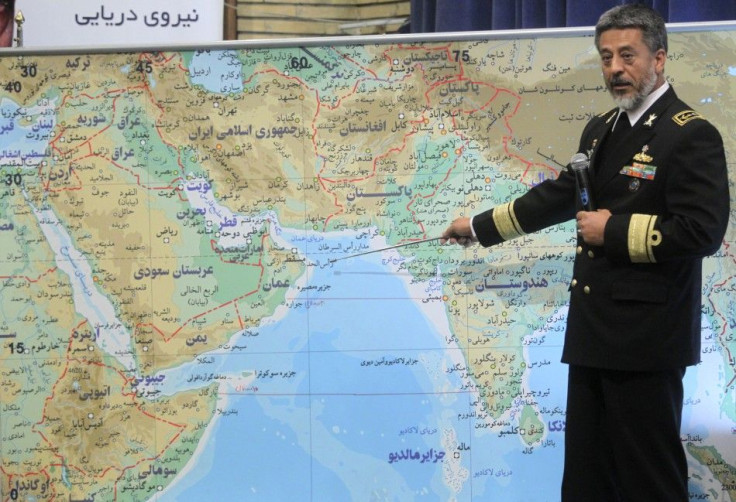Iran Lashes Out At Google Over Lack Of 'Persian Gulf' On Maps

The Iranian government is infuriated over what it says is political toying with modern technologies by Google and Iran's enemies.
Tehran has threatened legal action against Google on Thursday for not labeling the Persian Gulf on its maps. The country resists any ambiguity in the naming of the body of water separating it from Arab countries to the south.
In the past it has banned airlines that failed to use the name Persian Gulf, kicked out the National Geographic Society for using the term Arabian Gulf, and even created a state holiday called 'National Persian Gulf Day to highlight its stance on the issue. Previous uses of the term Arabian Gulf by U.S. officials and the U.S. military have drawn strong condemnations from both the Iranian government and overseas Iranian organizations.
Iranian state news say Google removed Persian Gulf from its maps, but Google claims it never labeled the area of water to begin with, as is the case with many other locations on its mapping system.
The Iranian government claimed that Google's actions -- or in this case a lack of action -- is playing with the feelings and realities of the Iranian nation.
The name Persian Gulf is the official name recognized by the United Nations for the body of water that separates Iran from Arab neighbors. In the past, empires that ruled over Persia (present-day Iran) exerted an overwhelming control over the maritime zone. European and international standards and mapmakers later adopted the use of Persian Gulf as well.
However, since the 1960s, pan-Arab nationalism in the region led some Arab governments to increasingly adopt the use of Arabian Gulf as a result. Iran's fortunes in the West subsequently diminished, as oil trade between Arab states and the West strengthen their political relations and as the Islamic Revolution resulted in a break between Tehran and Western capitals.
The contention over naming has led some organizations to label the area simply as'the Gulf. Iran has said anything but Persian Gulf would be recognition of the illegitimate claims of contenders.
A campaign by Iranian Web users in the past redirected searches for Arabian Gulf in Google to a mock error page stating: The gulf you are looking for is unavailable. No body of water by that name has ever existed. The correct name is Persian Gulf, which always has been, and will always remain, Persian. The page still appears prominently in Google searches for Arabian Gulf.
Gmail was banned in Iran on Feb. 10, 2010; Google's encrypted search and Youtube were later banned in February 2012. Feb. 11 is celebrated as the anniversary of Iran's 1979 Islamic Revolution.
But in this case, the issue may have nothing to do with Google at all, but to larger geopolitical forces. Analysts say that Iran has a strong sense of encirclement by enemy forces, particularly from the U.S. military, and reinforced by strong defense spending in recent years from oil-rich Arab neighbors like Saudi Arabia and the UAE. Together with recent economic and diplomatic attempts by the U.S. to further sanction the country and limit foreign markets for its petroleum exports, that may create a besieged mentality in the country.
Tensions between Iran and its southern neighbors have intensified in recent years over fears that the Islamic Republic is developing nuclear weapons. Maritime disputes over islands in the region are also highlighting differences and varied interpretations on history. That means a seemingly simple issue of semantics may easily be conflated into sensitivities over sovereign pride.
© Copyright IBTimes 2024. All rights reserved.





















